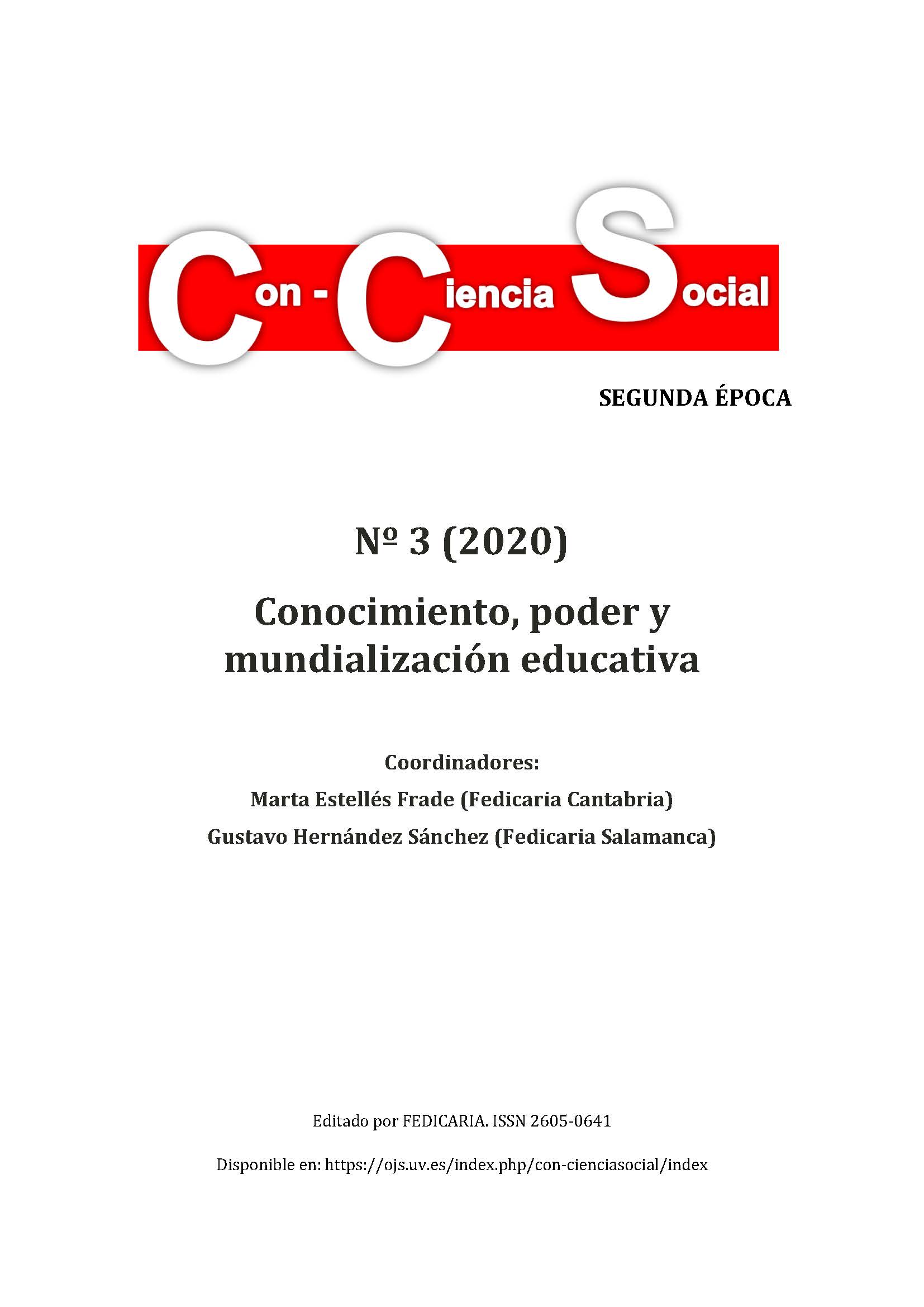Public administration in education: State actions in the reform dynamics and in the determination of the curriculum in Colombia during the 20th century
DOI:
https://doi.org/10.7203/con-cienciasocial.3.16797Keywords:
State, institutions, education, reforms, curriculum, capitalism Abstract
Abstract
The analysis of the contexts of curricular production, of the roles of the subjects involved in the process and the struggles unleashed in the definition of the fields of knowledge and the cultural contents that determine the official curriculum, can show the role of the State and of the educational institutional architecture as guarantors of the production and reproduction of specific social conditions to maintain or deepen socio-cultural inequality within the framework of the capitalist system. Thus, reforms become strategies or mechanisms used by the State for the absorption and adaptation of educational guidelines produced in the development dynamics of capitalism at the regional or global level, while at the local level, it exercises a role of regulation and control over educational processes through the fields of knowledge and school content with the purpose of orienting modes of formation aimed at maintaining the existing social order. These processes tend to be discursively legitimated by the dialectic of crisis-consensus-failure. This analysis is supported from a Marxist historical perspective, in which an argument is woven with theoretical sociological, juridical, political, administrative and educational elements.
 Downloads
Downloads
Downloads
Published
How to Cite
-
Abstract222
-
PDF (Español)207
Issue
Section
License
![]()
Los contenidos de Con-ciencia Social están protegidos por una licencia Creative Commons del tipo Reconocimiento-NoComercial-CompartirIgual 3.0 Unported.



